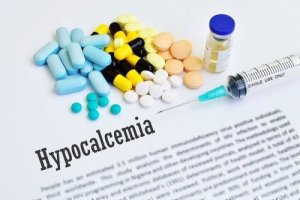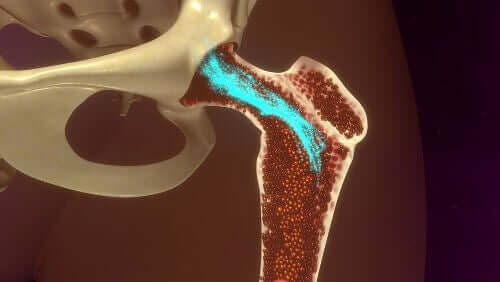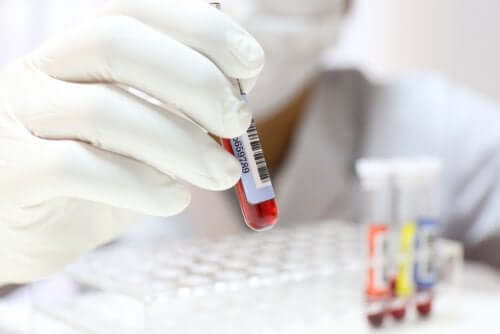Symptoms of Hypocalcemia and its Treatment

Calcium is one of the essential minerals your body needs to be in optimal shape. However, if your blood levels are too low, you may be suffering from hypocalcemia; a condition that’s quite common.
What are its symptoms and what treatments can your doctor prescribe? Here are the main questions in detail.
Understanding hypocalcemia
Calcium has two important functions at the intracellular and extracellular levels, as the article “Pathologies of Calcium Metabolism” of the Spanish Association of Pediatrics points out.
- On an intracellular level, it’s involved in several enzymatic reactions and is important for the transmission of nerve signals.
- Meanwhile, on an extracellular level, it’s important for endocrine secretion, coagulation, and neuromuscular plaque.
Knowing these two levels is very important because many of the symptoms of hypocalcemia are often associated with them.
The Symptoms of Hypocalcemia and its Treatment
Hypocalcemia commonly appears when there’s a deficiency of vitamin D. Most of the time, it’s the result of chronic kidney disease or some serious blood problem such as leukemia.

In all these cases and many more, the main organs that begin to degrade due to this calcium deficit in the blood will be the bones, intestines, and kidneys. Likewise, experts explain that this problem is accompanied by the following symptomatology.
Let’s look at some of the symptoms of this disease more closely.
- Increased excitability of the neuromuscular plaque. This includes painful muscle spasms, although they mainly affect the muscles of the limbs. This is what’s known as tetany.
- Fatigue and weakness. Patients are much more tired than usual. This may be due to diarrhea and sudden weight loss, another result of having this condition.
- Psychosis and anxiety. These two symptoms are quite common. Patients may begin to manifest a change in their sense of reality, followed by several anxiety crises.
- Paresthesia: In addition to spasms, people may feel tingling, numbness and burning in different parts of the body. Sometimes, you may also notice sharp pain.
These are just some of the symptoms that may accompany hypocalcemia. However, there are many others, such as arrhythmias or arterial hypotension, among others. Therefore, being under medical consultation will be essential to receive a reliable diagnosis and start treating this disease.
Discover: Seven Tips that may Help Your Body Absorb more Calcium and avoid Calcium Deficiency
Treatments for Hypocalcemia
According to the following article published by the Revista de Actualización Clínica Investiga, in order to check if a person has hypocalcemia, a blood test should be performed. In this way, the physician will be able to know if it’s necessary to start a treatment for this disease (in addition to detecting the type of hypocalcemia they’re suffering from).

Acute Hypocalcemia
The symptoms of this type of hypocalcemia are quite severe and therefore treatment must follow immediately. The most common one involves intravenous administration of calcium gluconate, a mineral.
Note that treatment must be monitored and controlled at all times while a person is receiving it. This is because, although necessary, the treatment could lead to cardiac arrhythmias.
Read: Strengthen Your Bone Health by Including these 8 Calcium Rich Foods in Your Diet
Chronic Hypocalcemia
This second type of hypocalcemia is different from the previous one. It is called “chronic” because the patient has serious problems stabilizing and balancing their blood calcium levels. In addition, they suffers from the disease for an extended period of time.
For this reason, a person afflicted with symptoms of chronic hypocalcemia needs permanent control over it. One of the most common treatments consists of oral intake of calcium and vitamin D supplements. This type of hypocalcemia isn’t as severe as the previous one, however, it does require follow-up in order to keep calcium levels stable.
These follow-ups may take place weekly after a diagnosis. Then, they’ll be reduced to once a month, and then once every three. It’s very important that a person undergoing treatment for hypocalcemia patients attends every single one of their control sessions, as per doctor’s instructions.
There’s no risk of arrhythmias, but kidney stones may appear. The way to keep them at bay is maintaining control over the salt a person diagnosed with hypocalcemia consumes.
Detecting hypocalcemia in time
Have you ever been diagnosed with hypocalcemia? Which of the two types mentioned above? We hope that this article has allowed you to get a better understanding this disease that many people suffer from, but whom many are unfamiliar with.
Also, if you identify with any of the symptoms described, it’s important that you go to a professional. They’ll evaluate you to provide you with the appropriate treatment.
All cited sources were thoroughly reviewed by our team to ensure their quality, reliability, currency, and validity. The bibliography of this article was considered reliable and of academic or scientific accuracy.
- Fraile-Gómez, Pilar, Blanc, Marc H., Segurado-Tostón, Óscar, García-Cosmes, Pedro, & Tabernero-Romo, José M.. (2014). Hipocalcemia, hiperfosforemia y elevación de la paratohormona: ¿un arduo diagnóstico diferencial?. Nefrología (Madrid), 34(1), 134-135. https://dx.doi.org/10.3265/Nefrologia.pre2013.Aug.12197
- Guillén López, Otto Barnaby. (2018). Hipocalcemia severa por deficiencia de vitamina D en una adulta mayor. Revista Medica Herediana, 29(3), 178-181. https://dx.doi.org/https://doi.org/10.20453/rmh.v29i3.3407
- Johnson, Ronald, Toloza, Jorge, Cortes, Lorena, & Valdés, Cristian. (2010). Miocardiopatía por hipocalcemia. Revista chilena de cardiología, 29(3), 374-377. https://dx.doi.org/10.4067/S0718-85602010000300017
- Martín-Baez, Isabel M., Blanco-García, Raquel, Alonso-Suárez, Mario, Cossio-Aranibar, Cynthia, Beato-Coo, Laura V., & Fernández-Fleming, Francisco. (2013). Hipocalcemia severa posdenosumab. Nefrología (Madrid), 33(4), 614-615. https://dx.doi.org/10.3265/Nefrologia.pre2013.Apr.11922
- Román, A., Osorio, M. I., Latorre, G., Gutiérrez, J., & Builes, C. A. (2013). Hipoparatiroidismo primario asociado a convulsiones. Acta Médica Colombiana, 38(3).
- Roman-Gonzalez, A., Zea-Lopera, J., Londoño-Tabares, S. A., Builes-Barrera, C. A., & Sanabria, Á. (2018). Pilares para el enfoque y tratamiento adecuado del paciente con hipoparatiroidismo. Iatreia, 31(2), 155-165.
- Surco Luna Víctor, Contreras Monje Alberts Yonahatan. ALTERACIONES DEL CALCIO -HIPOCALCEMIA E HIPERCALCEMIA. Rev. Act. Clin. Med [revista en la Internet]. [citado 2020 Jul 11]. Disponible en: http://www.revistasbolivianas.org.bo/scielo.php?script=sci_arttext&pid=S2304-37682013001200005&lng=es.
- James L. Lewis, III , MD, Brookwood Baptist Health and Saint Vincent’s Ascension Health, Birmingham. Hipocalcemia (concentración baja de calcio en la sangre). Merck and Co., Inc., Kenilworth, NJ, USA. https://www.msdmanuals.com/es-es/hogar/trastornos-hormonales-y-metab%C3%B3licos/equilibrio-electrol%C3%ADtico/hipocalcemia-concentraci%C3%B3n-baja-de-calcio-en-la-sangre.
This text is provided for informational purposes only and does not replace consultation with a professional. If in doubt, consult your specialist.








